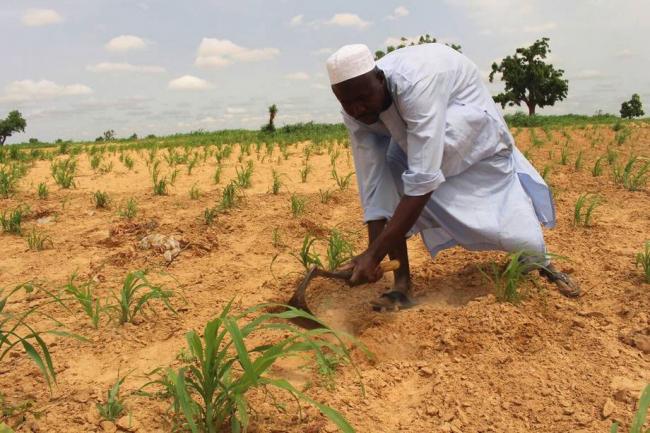
Urgent farming support needed amid rampant food insecurity in parts of north-east Nigeria – UN agency
“These populations need urgent assistance to recover their livelihoods, which are mostly based on crop farming, artisanal fisheries and aquaculture and livestock production,” Bukar Tijani, FAO Assistant Director-General and Regional Representative for Africa, said on Tuesday in a news release from the agency. “For the last three to four years this has not been possible due to the conflict,” he added.
The release added that the resumption of agricultural activities in these areas is of utmost priority to ensure that people can produce enough food for themselves. This includes those who have been internally displaced by the conflict as well as communities who have been hosting them.
It further noted that in parts of the country’s restive north-east, where food insecurity is rampant, some 385,000 people are in urgent need of farming and livelihood support.
The situation has been exasperated as three consecutive planting seasons were lost due to the fighting in the region.
Furthermore, large influxes of people escaping repeated Boko Haram attacks have put extreme pressure on already poor and vulnerable host communities and their fragile agricultural and pastoral livelihoods, exacerbating the already precarious food and nutrition security situation.
FAO estimates that more than three million people are affected by acute food insecurity in Borno, Yobe and Adamawa States.
“Failure to rebuild the rural economy will translate into lack of employment opportunities with possible harmful consequences including youth radicalization and enrolment into armed groups, resulting in continued civil unrest,” the UN agricultural agency warned.
Emphasizing the benefits of a timely intervention, it added: “Restarting food production in the newly accessible areas will have the additional benefits of encouraging displaced populations to return to their homes, while contributing to their improved health and nutrition.”
Responding to the crisis
In response to the ongoing crisis, FAO has launched an intervention and urgently requires $10 million to supply seeds, fertilizers and irrigation equipment for the upcoming irrigated dry season. In the meantime, the agency is also preparing its response for the main agricultural season for which even more resources are required.
“With funds received to-date, FAO has reached over 123,000 people to improve their food security by enabling them to grow their own food during the ongoing rain-fed season,” said Tim Vaessen, FAO’s Emergency and Response Manager in Nigeria.
“While this assistance is crucial, it reaches just a fraction of those in need of support and now FAO is seeking funds to support irrigated crop production, livestock restocking and animal health treatment, including disease control and supplementary feed, in the newly liberated areas,” he added.
Furthermore, in north-eastern Nigeria, the agency has provided agricultural kits to vulnerable internally displaced people with access to land and host families. The kits include improved varieties crop seeds and fertilizers, enabling beneficiaries to grow their own food during the ongoing rain-fed season. The harvest is expected to start by the end of September and will allow beneficiaries to cover their food needs for up to 10 months.
However, FAO’s activities in the country remain constrained by a serious lack of funding. To-date, the agency has received just $ 4.9 million, of which almost 20 percent has come from its own Special Fund for Emergency and Rehabilitation Activities.
Photo: FAO/Sonia Nguyen
Source: www.justearthnews.com
Support Our Journalism
We cannot do without you.. your contribution supports unbiased journalism
IBNS is not driven by any ism- not wokeism, not racism, not skewed secularism, not hyper right-wing or left liberal ideals, nor by any hardline religious beliefs or hyper nationalism. We want to serve you good old objective news, as they are. We do not judge or preach. We let people decide for themselves. We only try to present factual and well-sourced news.







